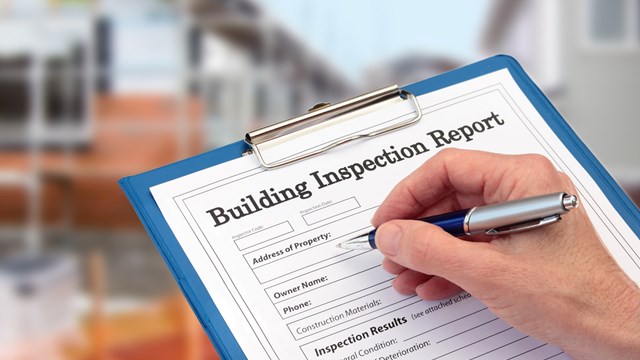
Condominium boards of managers and cooperative corporation boards’ of directors face special challenges when dealing with unit owners or tenant-shareholders who suffer from mental illness, psychological disorders and/or substance abuse.
While these individuals may engage in conduct that can be characterized as ranging from merely annoying to dangerous to self and/or other tenants in the building, boards often find it difficult to appropriately respond to the situations such conduct creates, especially if a tenant-shareholder’s difficult behavior arises out of an underlying mental illness. For example, co-op and condo boards have to be careful not to violate any federal laws that protect mentally ill tenants, such as the Fair Housing Act (42 U.S.C. § 3601, et seq.) (“FHA”), or the Americans with Disabilities Act (42 U.S.C. § 12101, et seq.) (“ADA”).
Discrimination Prohibited in Housing
The FHA and ADA prohibits discrimination against the mentally ill in the terms, conditions or privileges of renting a dwelling, or in the provision of services or facilities connected with the dwelling. It also broadly defines “discrimination” to include refusals to reasonably accommodate mentally ill individuals when such accommodations may be necessary to give them the equal opportunity to use and enjoy their living premises, except when that may impose an undue resource burden on the board or the individual poses a “direct threat” to self and/or others.
Condo and co-op boards also have to proceed carefully if they are unsure whether a tenant-shareholder or unit owner is mentally ill or has a substance abuse problem. Some individuals may choose not to disclose mental health issues while others may not know that they have such an issue that requires intervention. Furthermore, while some objectionable conduct like unconcealed substance abuse can be associated with a mental illness, others like noise nuisance and threats might, in some cases, be attributable to other sources.
Despite these difficulties, condo and co-op boards have some room to intervene when a person with a mental health issue engages in conduct viewed as objectionable. In fact, boards should not wait for a crisis before attempting to address complaints about the conduct of such an individual.
Seek Early Intervention
However, early interventions may not be possible in many cases, especially if a person’s compromised mental health impairs that individual’s ability to make objectively reasonable decisions, or to understand how his/her behavior may be offensive to others. In these instances, it would be advisable to seek the services of a mental health law attorney. This professional can provide guidance to the board in navigating the frequently complex laws relating to board intervention in situations involving persons with mental illness and/or substance abuse. In fact, a mental health law attorney can specifically guide boards in the implementation of feasible alternatives to eviction, depending on the type and symptoms of mental illness and/or substance abuse manifested by the individual.
For example, a mental health law attorney can assist condo and co-op boards in instituting guardianship proceedings pursuant to Article 81 of the New York Mental Hygiene Law against persons who, because of a disability, are unable to provide for their personal and/or financial needs, and are likely to suffer harm as a result. All the involved parties generally benefit, as the condo or co-op board is able to retain the tenant and continue receiving income, while the tenant-shareholder or unit owner receives necessary care and assistance. In other cases, the resident’s offensive behavior may result from non-compliance with a treatment plan. Since such individuals are usually able to control their offensive behavior once they resume the prescribed medication and follow-up regiment, a mental health law attorney can work with the board to have an Assisted Outpatient Treatment (“AOT”; See New York Mental Health Law § 9.60 (Kendra’s Law)) order issued for the mentally compromised tenant. If an AOT court order is issued, a treatment team will assist the tenant-shareholder or unit owner to achieve compliance with treatment.
In more serious cases, where behavior is likely to result in serious harm to him or herself, a mental health law attorney can assist a board in having a Mental Health Warrant issued by a court. Once a warrant is issued, the tenant-shareholder or unit owner will be brought before a judge, who then determines whether the individual’s condition requires removal to a hospital for evaluation and possible treatment. Condo and co-op boards can also benefit from a mental health law attorney’s expertise if a mentally compromised tenant needs placement in a more supervised setting. An attorney with expertise in this area can guide the board through the process of facilitating admittance into such facility, participating with family or other loved ones, as appropriate, and in navigating the legal landscape in this area.
As exhibited by the above illustrations, a mental health law attorney can offer condo and co-op boards a variety of legal alternatives when dealing with the mental health issues of their tenant- shareholders or unit owners. These alternatives can greatly increase goodwill between the board and tenants, and enhance the board’s reputation for proactively addressing issues that may otherwise have resulted in negative implications and outcomes. When addressing situations involving mental health issues and tenants, condo and co-op boards may instinctively view eviction as the only option; potentially a very costly and adversarial process if the tenant challenges this in court. Additionally, such an action may cause the board to be viewed in a very negative light.
No board wants to be viewed by the public or their tenant-shareholders as being uncaring or unappreciative of the struggles faced by tenants who suffer from mental illness or other psychological disorders. At the same time, condo and co-op boards also have legitimate concerns about maintaining a peaceful and safe environment in their dwellings. A competent mental health law attorney can guide these boards to successfully weigh and assess these competing interests, and pursue alternatives to eviction they may not have been aware existed.
Most importantly, a mental health law attorney can be involved and recommend interventions, if needed, at an early stage. Boards do not have to wait until the individual’s conduct reaches an objectionable level before intervening. Instead, with the help of a mental health law attorney, they can be more proactive and address mental health issues appropriately and effectively before they result in significant inconvenience to the tenant-shareholder or unit owner, and possible financial costs to all.
Carolyn Reinach Wolf, Esq., is chairperson of the Mental Health Law Group at Abrams Fensterman, LLP. The practice addresses all concerns involving mental health, mental illness, substance abuse, capacity and mental hygiene law. Mark Frimmel, Esq., is a partner, handling all aspects of the firm’s diverse real estate practice.






6 Comments
Leave a Comment